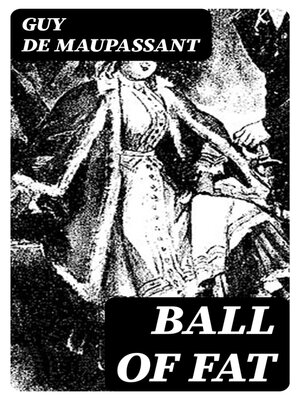
Sign up to save your library
With an OverDrive account, you can save your favorite libraries for at-a-glance information about availability. Find out more about OverDrive accounts.
Find this title in Libby, the library reading app by OverDrive.



Search for a digital library with this title
Title found at these libraries:
| Loading... |
In 'Ball of Fat', Guy de Maupassant crafts an intricate narrative set against the backdrop of the Franco-Prussian War, encapsulating the complex dynamics of class and morality within a microcosm of French society. The story unfolds within a stagecoach, charting the journey of its diverse passengers fleeing occupied Rouen, as they grapple with their prejudices and the compromising circumstances the war imposes upon them. Through sharp, vivid prose and masterful character study, Maupassant reveals the facades and foibles of human nature. The literary style showcased in this poignant vignette reflects Maupassant's quintessential narrative brevity and his acute skill in unmasking social ironies and human hypocrisy, a hallmark that situates the story firmly within both the realist and naturalist canons of its era.
Guy de Maupassant, a towering figure in the world of short fiction, wrote 'Ball of Fat' during a prolific period marked by unflinching explorations of the human condition. Protege of Gustave Flaubert and a leading exponent of naturalism, Maupassant's insight into the societal upheavals of his time—mirrored in the penetrating realism of his characters—was shaped by his own experiences as a soldier during the war, a bureaucratic clerk, and an acute observer of French society. The cynical disposition and empathy for life's underdogs that pervade his narratives position him as a compassionate yet unsparing chronicler of his milieu.
'Boule de Suif' ('Ball of Fat') is recommended for readers who appreciate literary realism and seek a deep, nuanced portrayal of humanity. The story serves not only as a lens to view the intricacies of human struggles during wartime but also as a timeless commentary on the universality of class conflict and moral ambiguity. A cornerstone of Maupassant's oeuvre, this work offers a compelling, incisive critique that echoes as significantly today as it did in the tempest of its own age.






